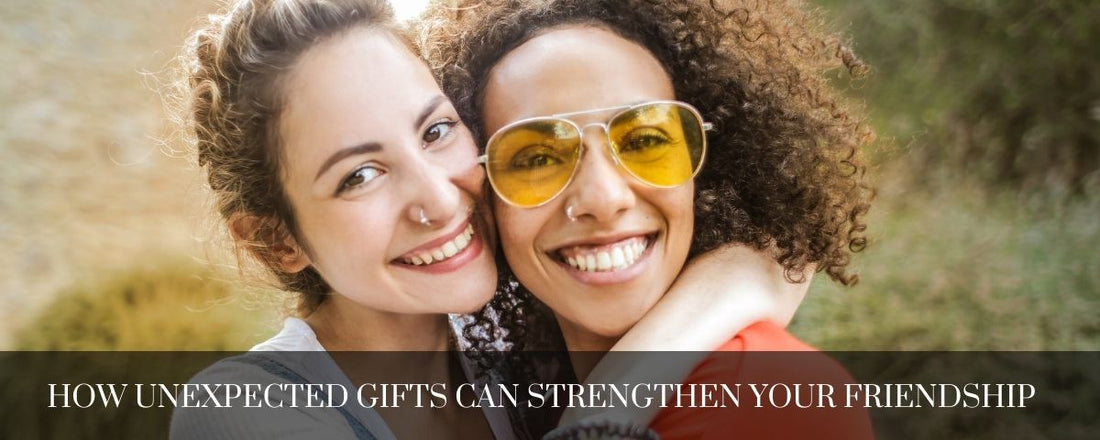“This made me think of you.” These are words that are so nice to hear from a friend, especially when accompanied by an unexpected gift: whether this be the simple gifting of a new song to listen to, a funny picture that reminded them of you, or even a physical gift that they just couldn’t leave behind, as they knew it should be in your hands.
We always stress about gift-giving for our friends and relatives around birthdays and holidays; you want to make sure you meet their expectations and give them something they actually want, right?
As it turns out, unexpected gift-giving is a great way to strengthen your friendships! In fact, in a study by Bermster and Loop Commerce, it was found that while most gift-givers will buy gifts that are expected (for example: they know exactly what the person wants, they know when it will be given, it is a traditional gift that has been given before, etc), most recipients actually prefer receiving gifts that are unexpected.
Why is that? Historically, gift-giving was a ritual performed between family and friends as a money transfer system. This eventually evolved into giving as we know it today, but for many there is still a sense of expectation and transaction when giving gifts: whether this be from gift budgets, the equitable give-and-take at holidays, or traditions for special occasions. Keeping all these things in mind can be exhausting, and create what we call a “social contract” in the act of giving gifts between friends.
While it is nice for things to feel equitable, being rigid in the rules of when and where you can give a gift can make it feel less spontaneous and organic, which in turn can undermine the sense of trust and natural good-intentioned feelings within a friendship. Why can’t you give a gift just because you want to tell the other person how much you cherish them?
In contrast, giving gifts at unexpected times or when not dictated by social rituals, it can show thoughtfulness towards the other person. This also demonstrates an effort towards the relationship beyond what is simply expected by regular social assumptions of what you are “supposed” to do or give.
It all comes out in the wash, at the end of the day! You should be giving gifts because it feels good and to make someone feel special and appreciated, not because you feel like you have to. That’s how the act starts to feel hollow after a while, if too many rigid rules are being followed.
When giving a gift to a friend, it makes sense to try and give something that you know the other person likes; this shows that you are listening to them, care about them and their interests, and know who they are as a person. What an easy way to let people know that you care and pay attention! This is certainly a way in which gift-giving can help in strengthening your bond with your friends.
But have you also considered showing a piece of yourself in your gift-giving? According to Psychology Today, surveyed individuals reported appreciating gifts that reflected the giver’s true self, as this made the givers and receivers feel closer to one another. Sharing a piece of yourself in your gift-giving can strengthen your friendships by letting the other person learn about you. This can make you feel vulnerable, but also shows the other people the trust you put into the relationship in showing this true part of yourself. Share who you truly are, and the other person will share back.
No matter what message you want to send, gift-giving is a great way to let your friends know you are thinking about them and strengthen your bond.
Why not surprise one of your friends with a special delivery today, just because? We can all use an unexpected boost from time to time.
Contact us today and we will help you create a perfect, customized gift to surprise your friends! We can create the perfect custom gift box for them, with all the things they love, or things that remind them of the fun times you two have together.

